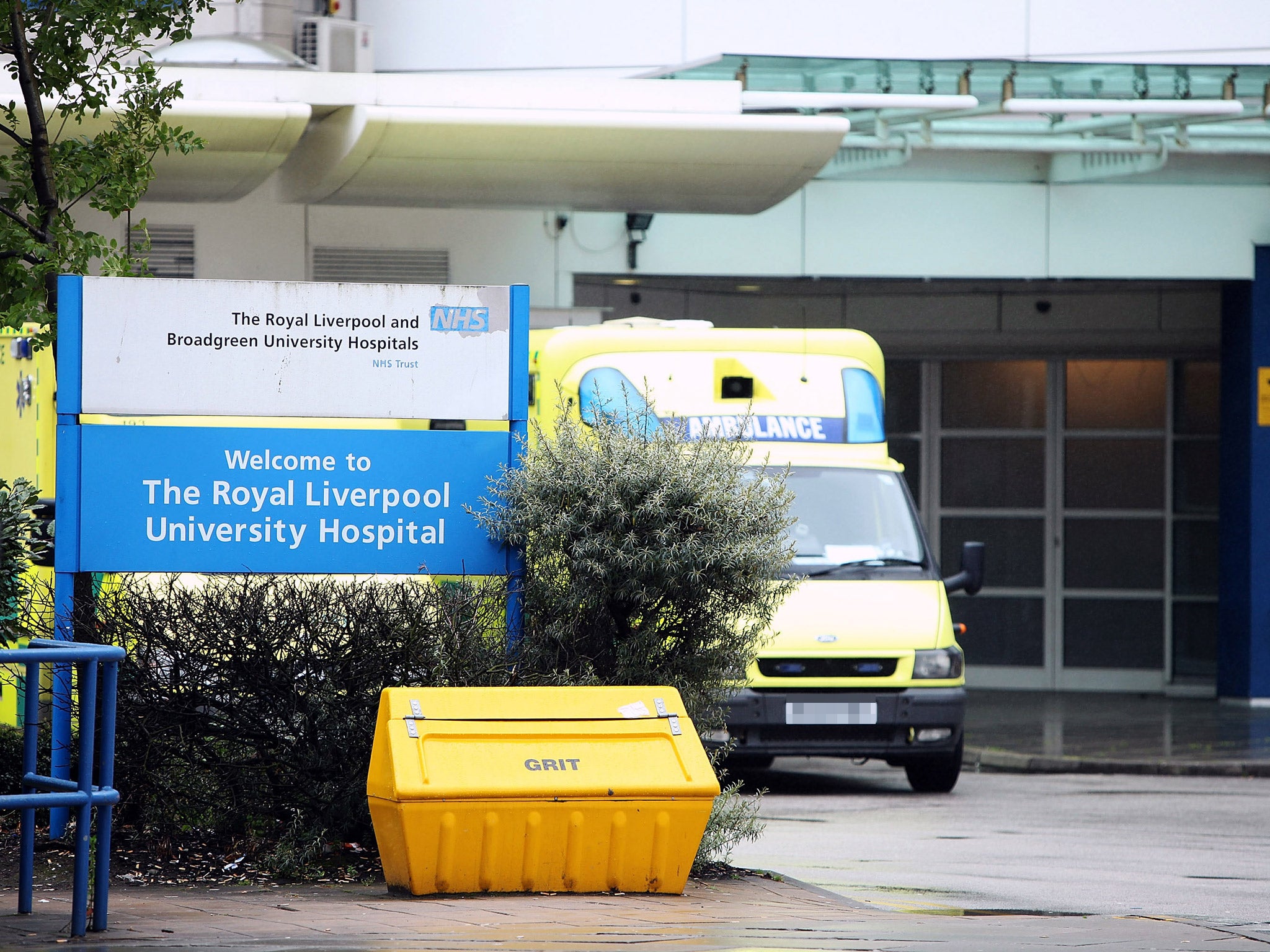Royal Liverpool Hospital faces six-figure payout after surgeon accidentally gives patient a vasectomy

A surgeon has been suspended after a man undergoing a minor operation at Royal Liverpool Hospital was mistakenly given a vasectomy.
Doctors have tried to reverse the procedure but it is not yet certain whether it has been successful as the hospital “apologised unreservedly” for the blunder that could leave it facing a six-figure payout if the man has been left infertile.
Health bosses described the incident uncovered by the Liverpool Echo as a “never event” – a medical mistake that should never happen – and a case of “wrong site surgery”. The surgeon will not be allowed to carry out any operations while an internal investigation is under way. The patient, who was expecting a minor urological operation, has not been identified and the NHS Trust refused to disclose his age.
Medical Director Dr Peter Williams said: “We can confirm a patient who was scheduled to have a different minor urological procedure was wrongly given a vasectomy. We have apologised unreservedly to the patient and we are offering him our full support. We greatly regret the distress this has caused him.
“It is our duty, in the best interests of the patient to uphold their confidentiality, therefore we cannot provide any further detail without their agreement. This is a serious incident and we are investigating this fully to understand why it occurred and how we can ensure it does not happen again.”
A vasectomy is a surgical procedure in which the tubes that carry sperm from a man’s testicles to the penis are cut, blocked or sealed. In most cases, it is more than 99 per cent effective.
However, the same cannot be said of reverse vasectomies which have a success rate of just 55 per cent according to NHS England. Nor is it guaranteed that a couple could go on to have a child if a man has undergone a reversal.
Ian Cohen, clinical negligence lawyer at Slater & Gordon, said the error could cost the trust a huge sum in compensation.
He told the Echo: “This is a truly shocking and worrying case. From what we know there has been a catastrophic breakdown in procedure, as simple checks designed to ensure the correct operation is carried out on the right patient seem to have failed. In a worst case scenario – sterility in a younger man with no children – the trust might be liable for a figure in excess of £100,000 in compensation.”
Hospital bosses admitted the mistake during a Royal Liverpool and Broadgreen University Hospitals NHS Trust board meeting.
Chief Executive Aidan Kehoe said it appeared the World Health Organisation surgical safety checklist “had not been followed” when the operation happened in February.
The GP-led Liverpool Clinical Commissioning Group board, which monitors patient safety incidents, said the case involved “wrong site surgery”.
NHS England says never events are “serious, largely preventable patient safety incidents that should not occur if the available preventative measures have been implemented”.
Dr Williams said: “We take any incident such as this extremely seriously and report them at the highest level in the trust and to our regulators. Since this incident the surgeon has not been carrying out any operations, pending the findings of the investigation. In addition we are carrying out routine checks on compliance with the WHO checklist and our surgical teams are compliant.
“We care for around 90,000 inpatient and day-case patients a year and carry out over 25,000 surgical procedures. Since 2011 we have had one other never event.”
Louise Ellman, Liverpool Riverside MP, said it was “very important” the patient was supported by the trust. She said: “Clearly this is a matter of great concern for the person involved. This must be followed up by the hospital and action taken to ensure it doesn’t happen again.”
Subscribe to Independent Premium to bookmark this article
Want to bookmark your favourite articles and stories to read or reference later? Start your Independent Premium subscription today.

Join our commenting forum
Join thought-provoking conversations, follow other Independent readers and see their replies